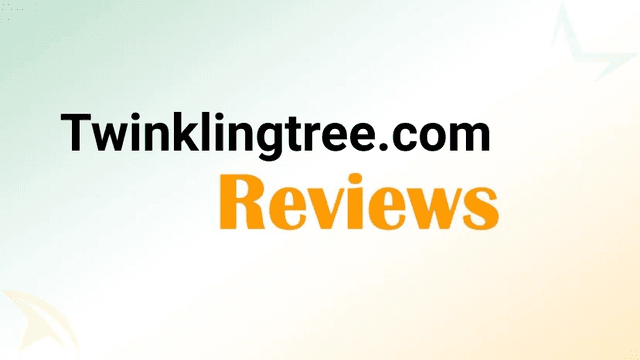The digital marketing landscape is evolving at an unprecedented pace, and staying ahead requires more than just understanding the trends—it demands a strategic approach to harnessing them effectively. Based on the latest insights from industry experts, reports, and a thorough analysis of market shifts, here are the most impactful data driven digital marketing trends to focus on in 2025.
1. AI-Powered Content Creation: Scaling Quality & Efficiency
Keyword Focus: AI content creation, generative AI tools
AI technology is revolutionizing content creation. In 2025, it will not only automate content production but also enhance creativity, ideation, and overall efficiency. Marketers are increasingly leveraging generative AI tools to scale content efforts without sacrificing quality. These tools can streamline processes, transforming blogs into video scripts or social media posts, while assisting in data driven marketing analytics.
Key Use Cases for AI in Content Marketing:
-
Content Repurposing: Repurpose existing content into new formats to increase reach and engagement.
-
Data Analysis: AI tools assist in analyzing user behavior and campaign performance to refine marketing strategies.
-
Creative Ideation: AI can aid in brainstorming and developing fresh content ideas, improving overall campaign effectiveness.
Pro Tip: Start with free tools like AI Content Creator to get familiar with generative AI, but always refine outputs to maintain originality and avoid plagiarism. Tools like Google’s Gemini can also verify sources to ensure accuracy and credibility.
2. Social Media Dominance: The ROI Leader
Keyword Focus: Social media ROI, in-app shopping
Social media continues to dominate the digital marketing landscape, offering brands unparalleled opportunities for engagement and return on investment (ROI). In 2025, the emphasis is on social platforms' ability to drive sales through in-app purchases and direct engagement.
Why Social Media is Crucial:
-
Product Discovery: 64% of Gen Z and Millennials discover new products on social platforms.
-
In-App Purchases: 17% of social media users make direct purchases through social platforms, increasing their ROI potential.
Top social media platforms leading this shift include Facebook, which boasts a high adoption rate among marketers, and emerging platforms like Threads and X, which marketers are investing in to tap into younger demographics.
3. Visual Storytelling: Short-Form Video Reigns Supreme
Keyword Focus: Short-form video marketing, visual content
In 2025, visual storytelling continues to be a dominant trend. With the rise of platforms like TikTok, Instagram, and YouTube, short-form video content has proven to be the most effective format for engaging users. Short-form video provides a unique opportunity to connect with audiences quickly and authentically.
Why Short-Form Video is So Effective:
-
Platform Growth: YouTube, Instagram, and TikTok are seeing increasing investments in short-form video content.
-
Consumer Preference: 59% of Millennials prefer video content over other types, making it crucial for brands to prioritize visual formats.
Case Study:
A leading blog team saw a significant traffic boost by incorporating short-form videos into their content strategy. This shift resulted in higher user engagement and increased brand visibility.
4. Niche Influencers: Trust Overreach
Keyword Focus: Micro-influencers, influencer marketing trends
Influencer marketing is shifting from big-name celebrities to micro-influencers—individuals with fewer than 100,000 followers. These influencers offer a higher level of trust, intimacy, and engagement with their followers, making them more effective for niche marketing.
The Benefits of Niche Influencers:
-
Higher Trust: Audiences are more likely to trust micro-influencers due to their perceived authenticity.
-
Cost Efficiency: Collaborating with micro-influencers can yield greater impact for a fraction of the cost of partnering with larger influencers.
Success Story:
A recent campaign by Bitly saw engagement rates 6X higher and an 82% increase in followers when they partnered with niche influencers. This demonstrates the potential of working with smaller, more targeted creators.
5. Data Privacy Challenges: Adapting to New Norms
Keyword Focus: GDPR compliance, third-party cookie phaseout
The digital marketing world is grappling with growing data privacy concerns. With GDPR compliance and the phaseout of third-party cookies, marketers must find new ways to collect and use customer data. The shift towards privacy-first practices is no longer optional—it’s a necessity.
Key Adaptations:
-
First-Party Data: Leveraging CRM tools for collecting zero-party data is becoming essential.
-
Transparency: Consumers are increasingly demanding transparency and control over their data, which means marketers must adopt ethical data practices to build trust.
6. Hyper-Personalization: Beyond Basic Demographics
Keyword Focus: Personalized marketing, customer experience
In 2025, hyper-personalization will go beyond basic demographic data. Marketers are now using advanced tools to track user behavior, preferences, and past interactions to deliver a more tailored experience that increases conversion rates.
Why Hyper-Personalization Works:
-
Sales Growth: 94% of marketers link hyper-personalization with increased sales.
-
Advanced Analytics: Marketing analytics tools are bridging the gaps in understanding customer behavior and needs, allowing for a deeper level of personalization.
Tools to Leverage:
-
Behavioral Tracking: Platforms like HubSpot and Salesforce provide in-depth analytics to refine personalization strategies.
-
AI Recommendations: Personalized product recommendations powered by AI can significantly boost customer engagement and sales.
7. Breaking Data Silos: The Single Source of Truth
Keyword Focus: Data driven marketing, CRM integration
One of the biggest challenges in digital marketing is fragmented data. Marketers are increasingly focused on breaking down data silos and creating a single source of truth to improve decision-making.
Key Strategies:
-
CRM Integration: Centralizing customer data within a CRM system helps marketers gain a unified view of their customers, facilitating more accurate targeting and personalized campaigns.
-
Cross-Team Collaboration: Breaking down internal silos and improving data sharing between teams is essential for successful marketing efforts.
8. Ethical AI Integration: Balancing Innovation & Responsibility
Keyword Focus: Ethical AI, responsible AI practices
As AI becomes more prevalent in marketing, ethical concerns are growing. Marketers must strike a balance between leveraging AI for innovation and ensuring that its use aligns with ethical standards.
Key Concerns:
-
Bias Mitigation: AI tools must be audited to prevent bias and ensure fairness in content creation and targeting.
-
Gen Z Skepticism: Younger generations are increasingly skeptical of AI, which means transparency in AI usage will be crucial for brand trust.
9. Podcast & Audio Content Resurgence
Keyword Focus: Audio marketing, podcast trends
Podcasts and audio content are making a comeback in 2025. With platforms like Spotify enhancing ad targeting, audio content provides a unique, intimate touchpoint for brands to engage with their audiences.
Podcasting Benefits:
-
Increased Engagement: Podcasts offer long-form, valuable content that can help build a loyal audience.
-
Enhanced Targeting: With the rise of podcasting platforms, advertisers can target niche audiences with specific interests.
10. Agile Workflows: Collaboration Over Complexity
Keyword Focus: Marketing automation, workflow tools
Agility is key in 2025. Marketers are moving towards more flexible, agile workflows that allow for faster experimentation and collaboration. Tools like Asana and Miro are streamlining tasks and enabling teams to focus on creativity and innovation rather than complexity.
11. Sustainability-Driven Branding
Keyword Focus: Sustainable marketing, eco-friendly branding
As sustainability becomes a more pressing global issue, brands are aligning their messaging with environmental and social governance (ESG) efforts. Consumers increasingly choose brands that reflect their values, making sustainability-driven branding a crucial part of marketing strategy in 2025.
12. Voice Search Optimization
Keyword Focus: Voice search SEO, conversational AI
Voice search is growing, driven by the increased adoption of smart speakers. Marketers need to optimize their content for voice search by focusing on natural language queries and conversational keywords.
Why Voice Search Matters:
-
Growing Adoption: With more consumers using voice-activated devices, brands must optimize for voice search queries.
-
Conversational AI: Tailoring content to fit conversational search patterns will improve visibility and engagement.
Final Thoughts: Stay Ahead with Data-Backed Strategies
The key to thriving in 2025’s digital marketing landscape is staying agile, ethical, and customer-centric. By embracing AI, focusing on personalization, and prioritizing data privacy, brands can not only stay ahead of trends but also build stronger, more authentic relationships with their audiences.
As you audit your 2024 strategy and look towards the future, consider how these trends will influence your marketing efforts. Whether integrating AI for creative ideation, leveraging niche influencers, or optimizing for voice search, the time to act is now.
Also read









